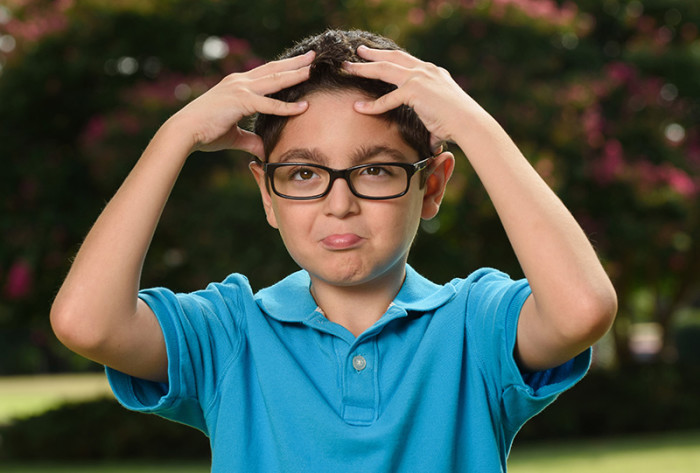
In response to requests for more information about children’s headaches, members of our neurology team compiled answers to some of the questions they often hear related to how to help minimize childhood headaches and when to seek professional help.
Are headaches common during childhood?
Headaches are a common problem in children, a frequent reason for doctor visits and the most common complaint for which people see a neurologist. They can begin at any age and often worsen during adolescence.
What are common headache triggers for children?
There are many common reasons for childhood headaches. Common “triggers” include:
- Poor water intake
- Skipping meals
- Poor sleep habits
- Allergies
- Weather changes
- Neck strain from excessive use of electronic devices (known as “text neck”)
- For some individuals certain foods (ex., processed meats, food additives or dyes) can trigger headaches
- Overuse of over-the-counter medication like acetaminophen or ibuprofen can also be contributing factors (The same can happen with certain prescription medications.)

What are tips for managing/reducing headaches?
Headache management starts with living a healthy lifestyle and managing the triggers listed above. To promote a healthy lifestyle, be sure your child:
- Maintains a consistent bedtime and get 8-10 hours of sleep each night
- Does not skip any meals
- Drinks plenty of water and limits sugary/caffeinated beverages
- Engages in daily physical activity to improve cardiovascular health
- Limits screen time (which includes TV, computer, video games and cell phones)
Also, avoid overuse of over-the-counter rescue medications (like acetaminophen or ibuprofen) to treat headaches when they occur. Do not use rescue medication more than two to three times a week and talk to your child’s doctor if you find your child needing frequent rescue medication.
When should my child see a doctor?
Always inform your child’s primary care physician or pediatrician about any symptoms your child is experiencing. Consult your child’s PCP if headaches are a new concern or if they persist despite treatment with over the counter medication.
Any of the following headache symptoms may result in a referral to a child neurologist:
- Daily headaches
- Headaches that wake your child from sleep or occur early in the morning
- Headaches that occur in the back of the head or occur only in one location of the head
- Worsening headaches/increase in headache frequency
- Headaches associated with loss of balance and coordination
- Headaches that cause a significant impact on normal activities
- Headaches that cause school absences or limit daily activities
What is a migraine?
Migraine headaches are a specific type of headache that are often described as recurrent throbbing headaches that typically affect one side of the head. They are often accompanied by nausea and vomiting and sometimes accompanied by disturbed vision. Migraine headaches may occur in 7 percent of all children and 90 percent of children who experience migraine headaches have a parent with a history of headaches.
Headache diary
Does your child experience headaches? Download this headache diary to track symptoms. This information can be helpful for the pediatrician or neurologist.
What services are available at CHoR for children experiencing headaches?
More than 50 percent of our child neurology referrals are for pediatric headaches. We recently recruited additional child neurologists to better meet the growing need for this service. Our headache team now includes two child neurologists and two nurse practitioners. The team focuses on the diagnosis and treatment of headaches before they become disabling and minimizing the use of medication unless necessary. Our team provides Botox and occipital nerve blocks to chronic migraine patients that do not respond to traditional migraine management, as well as the unique technique of teaching self-hypnosis for children and families who are interested in this alternative headache therapy.
